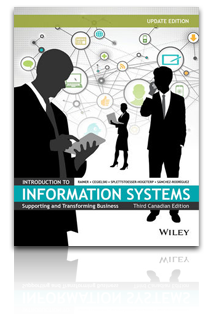
Despite talk that RPA is over hyped, Sarah Burnett, a guru on automation technologies, says that it can cut process costs by 30%, but there is another benefit, not so obvious, and it lies with creating data we can trust.
Source: Information Age
Date: March 27th, 2019
Link: https://www.information-age.com/look-beyond-rpa-hype-123481025/
Discussion
1) What is Robotic Process Automation?
2) How is Robotic Process Automation going to impact Accounting, Finance, Marketing, HR, Operations?







 Nonie Wideman said a plastic mesh she had surgically implanted to support her bladder gave her debilitating health problems. Health Canada rejected her multiple requests to see the clinical evidence the department used to approve the mesh for use in Canada. (Craig Chivers/CBC)
Nonie Wideman said a plastic mesh she had surgically implanted to support her bladder gave her debilitating health problems. Health Canada rejected her multiple requests to see the clinical evidence the department used to approve the mesh for use in Canada. (Craig Chivers/CBC)

